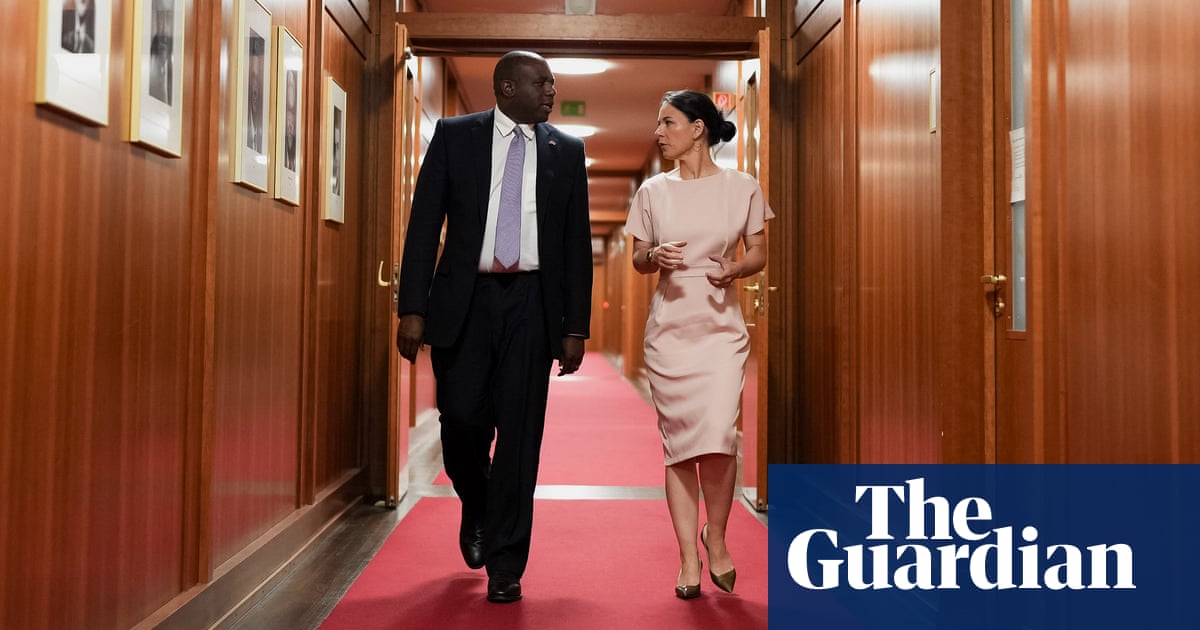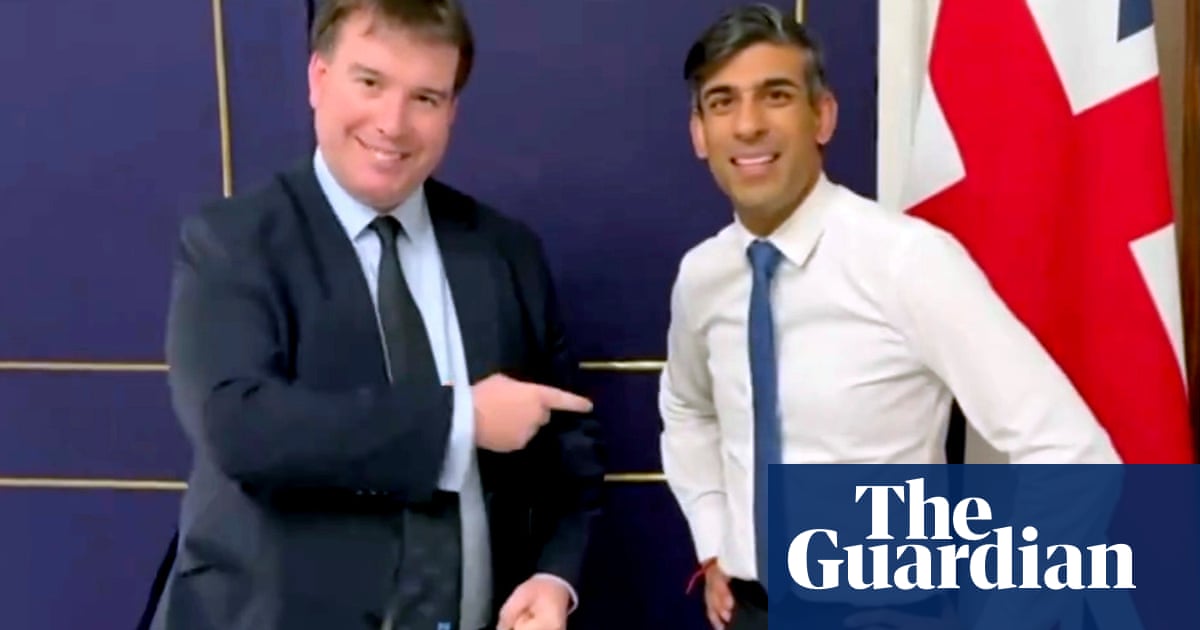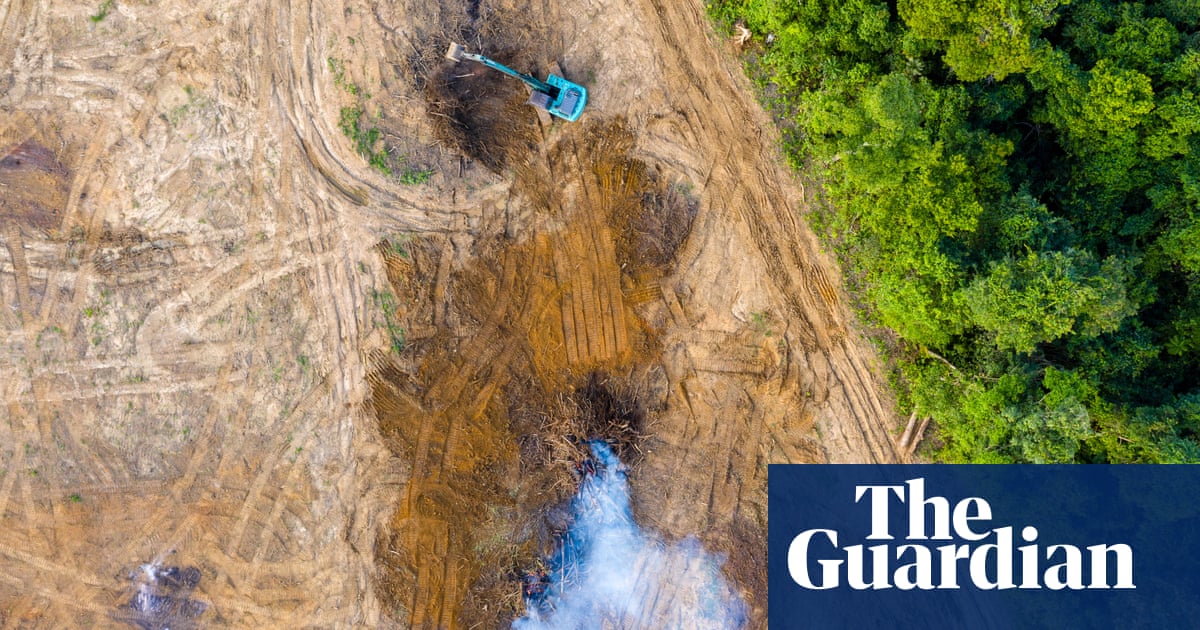It felt like a deeply symbolic, even cathartic, moment on Saturday lunchtime as, on take-off from Stansted, the pilot carrying the new foreign secretary, David Lammy, banked the government plane with the union jack livery sharply leftwards across the sodden and half-occluded fields of Essex and towards Europe.
For the first of what are likely to be innumerable overseas trips, Lammy had chosen Destination Europe, and Operation Reset. It was intended quite literally to be a flying start as he hurtled from his first cabinet meeting down the M11 and on to a flight to Berlin, Stockholm and Bydgoszcz, close to the pastoral family home of the Polish foreign minister Radoslaw Sikorski.
The lightning weekend trip is only the first leg of what may prove to be a long and painful journey reconstructing a relationship with Europe after the eight fractious years of Brexit, albeit a relationship with boundaries. For although Lammy in Berlin said he wanted to draw a line under the Brexit years, Labour remains rigidly committed to staying outside the EU, the single market and the customs union. Britain is returning to Europe, but as a changed country seeking cooperation, not union.
It is a delicate operation, involving complex trade-offs, and it may not work. In Brussels at a time of rising European nationalism, there will be fears that it cannot be perceived to be granting any concessions to a country that fled the EU. In the UK, the Conservatives, anxious for redemption as Boris Johnson has already written, accuse Labour of taking the UK back down the road to EU âserfdomâ.
The trip, planned in opposition for weeks in great secrecy but with the knowledge of the outgoing foreign secretary David Cameron, took Lammy to meet what may become three of his most influential European partners: Annalena Baerbock, the German foreign minister; Sikorski; and the Swedish foreign minister, Tobias Billström.
Between the visits, Lammy squeezed in 16 introductory phone calls with EU and world diplomats including Antony Blinken, the US secretary of state, and Josep Borrell, the EU foreign affairs chief. Paris would have been another stop-off but for the fact that French politics, in the midst of National Assembly elections, is in what may charitably be described as a state of flux.
It did not escape UK officials that after years as the sick man of Europe, the opportunity arises for the country to suddenly look like an oasis of stability, led by a government with at least four years in power and an impregnable majority.
Lammy aimed to come not just with warm words, but with the outline of a plan for an EU-UK security pact. That plan, carefully hatched in opposition, and in some ways reviving ideas that fell by the wayside in the original Brexit negotiations, is more ambitious and wide-ranging than commonly recognised, since security is being defined by the Lammy team in its broadest sense, to cover not just defence, but the web of issues that make up modern-day security, from the climate crisis to energy, pandemics, cyber, investment strategies and critical minerals.
He came away from his conversations with Sikorski and Baerbock feeling that there was an enthusiasm to form a new cooperation agreement, although exactly how formal that agreement, and whether it has legal elements, are for future discussion. With EU states worrying about what the possible US presidency of Donald Trump might mean for the Nato umbrella and US contributions to the defence of Europe, the return of the British, with their defence expertise, could at least offer a form of reassurance.
Poland, with its high levels of defence spending, Germany, with its response to the Russian invasion of Ukraine, and Sweden with its newly minted membership of Nato seemed obvious places to start.
In what he conceded was a âtough geopolitical momentâ, Lammy said it was important not to confuse disagreements between mature democracies with the threats posed by authoritarian regimes.
He then went into an unscripted warning to China, saying: âI am concerned when I see Iranian drones turning up in Ukraine. I am concerned when I see shells from North Korea being used here on European soil. And of course Iâm concerned with the partnership that I see Russia brokering across those authoritarian states. I think that China should be very careful about deepening those partnerships over the coming weeks and months.â
after newsletter promotion
Lammy and his team face a steep learning curve as they navigate the protocols of ensuring that convoys arrive on time, keeping his close protection team near, providing the right diplomatic gifts, thanking the local embassy team, feeding the frequent demands of Foreign Office official social media, and ensuring he is not photographed in the rain, or âdoing a Sunakâ.
There is little downtime. Ten minutes watching the England v Switzerland Euro 2024 quarter-final with Baerbock was followed by a rush back to the hotel for a briefing on Gibraltar, and then a chance to glimpse England win on penalties, as well as to have a hour with his son who, by chance, was also in Berlin, Interrailing after completing his A-levels.
But Lammy is determined that his European tour is part of a wider UKâs reconnection with the world. In his cavernous office in King Charles Street, hours after being made foreign secretary, he reflected on how, as a descendant of enslaved people, he felt he had a special responsibility to find a new voice for Britain when speaking to the global south.
âThese are nations that are just vastly different to where they sat a few years ago. Much of the global south can â we saw this during the vaccine episode â look to us for help. They didnât get the help then, so they turned to India or China.
âAnd the truth is that thereâs got to be a tonal shift. And weâve got to recognise that itâs a competitive world.â
It will require a different, less blustering approach. âWhat I have learned is about the importance of listening, not just preaching,â Lammy said. âDiplomacy is also about listening. And to listen, you have to really hear, and Iâm not sure weâve been good at that over the last few years and weâve got to get back to it.â



